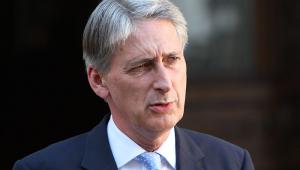Hammond has admitted that public patience with austerity is wearing thin but the foundation said, in its Ending Austerity? report, that there would be costs to reversing it.
Removing the pay cap alone would be only “tinkering with austerity” rather than a radical change, it said.
While some politicians have suggested that the public sector pay cap could be ended without causing fiscal pressures, the report said that allowing public sector pay to rise in line with the private sector from next year would cost £9.7bn by 2021-22, while allowing the public workforce to grow in line with the population would cost a further £11.5bn over the same period.
Twice as many families, equivalent to 11.5m are affected by the separate freeze on working age benefits.
The cost of lifting this freeze would be lower, the foundation said, as allowing working age benefits to rise in line with inflation from next April would cost £3.6bn by 2021-22, while reversing cuts to Work Allowances in Universal Credit would cost around £3.2bn.
Its assessment of allowing departmental spending to rise in line with GDP growth after the end of the current spending review in 2019-20 was a cost of £12.3bn by 2021-22.
The foundation said Hammond had a £30bn buffer in his fiscal mandate of getting structural borrowing down to below 2% of GDP by 2020-21.
“While some might argue this could allow him to change tack on public service spending and welfare while still meeting his fiscal rule, doing so would mean borrowing around £100bn more over the next four years than is currently planned and set Britain on course for debt levels to remain above 60% of GDP past 2040”, the report said.
The foundation said it was “understandable that politicians want to revisit the austerity debate” but they must “face up to the price tags involved and the need for clear prioritisation given the trade-offs between higher public spending and additional borrowing or higher taxes.”
Its chief economist Matt Whittaker said: “The shock election result has led politicians from all parties to question whether the public have grown tired of austerity. Seven years on from then Chancellor Osborne’s first emergency Budget, it’s no surprise that squeeze fatigue has set in.
“But recognising that fatigue is very different to doing something about it.
"If we want a serious discussion on ending austerity, we need to get serious about prioritising what spending we really want to see rise and how we want to pay for it – and that means tax rises for most of us.”











